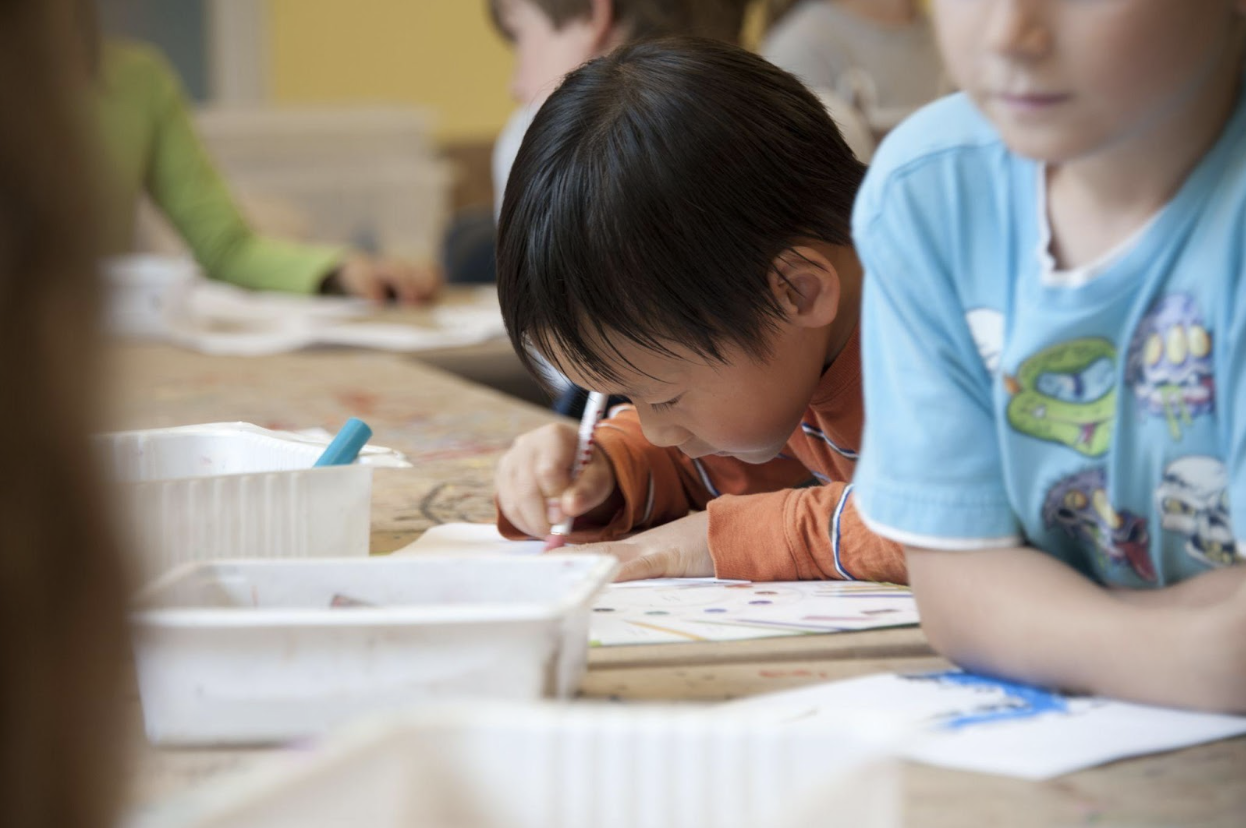
Whether you’re new to Montessori or a seasoned veteran, you’ve probably noticed that we don’t often encourage competition between our students. You’ll see obvious evidence of this in the fact that we don’t practice traditional grading methods, but you’ll also see it in smaller ways throughout the program.
This is not done by accident. In the Montessori philosophy, we encourage one type of competition—and it’s not competition with others. It’s competition with oneself.
We know that competition is a part of life for many adults, and because of that, we work hard to cultivate characteristics in children that give them what they need to engage in healthy, competitive situations.
Internal and External Motivation
Intrinsic motivation is very important to Montessorians because we believe that it’s more powerful than external rewards. For over a century, this has been the foundation of our educational model. Oftentimes, people are more successful when they’re driven by internal motivations instead of perceived rewards like prizes, grades, or money.
Preparing Children for Real-Life Competition
We understand that a Montessori school can feel like a bubble that exists all on its own, which is why we equip our students with what will come next in their lives—whether they move onto traditional schools, college, or the workforce.
While a child spends time in Montessori school, the following character traits will be cultivated and encouraged:
Self-confidence
When Montessori children learn to do things for themselves, it builds self-confidence. In a Montessori environment, children are respected by adults, and their personal autonomy is honored. Building routine and structure allows children to accomplish both big and small things, and that feeling of self-accomplishment quickly builds confidence. Children develop a strong sense of self and believe that they are capable of all sorts of things—not only that, but they are also willing to try those things on their own.
Resilience
Traditional schools often expect less of children than what is developmentally appropriate—but we know that when students feel driven to challenge themselves, failure is not only expected but welcomed.
Most people equate failure with negativity, but failure is nothing more than an opportunity to learn. Montessori children understand how to use failure as a stepping stone that leads them toward mastering a skill.
Independence
Children will stay with the same teacher for three years at a time, which allows teachers and students and parents to build strong relationships. This also takes away the stress of starting over in a new classroom each year.
The Montessori philosophy
Taking age and individual needs into account, Montessori children are encouraged to be as independent as possible. They don’t need to rely on others to get started or to finish tasks, and they have plenty of experience when it comes to facing challenges head on, all on their own.
Being independent allows children (and adults) to feel confident in taking on leadership roles. It allows us to be self-aware and to trust ourselves.
Cooperation
Independence is key, but cooperation is important too. Many competitive situations involve working toward a common goal with a team, and that’s something that Montessori children do quite often.
The Healthily Competitive Child
While competition itself isn’t taught in a Montessori school, plenty of traits are nurtured that prepare children for a life where they will encounter competition.
To learn more about the Montessori philosophy or to schedule a tour, get in touch with Austin Children’s Academy today.





















